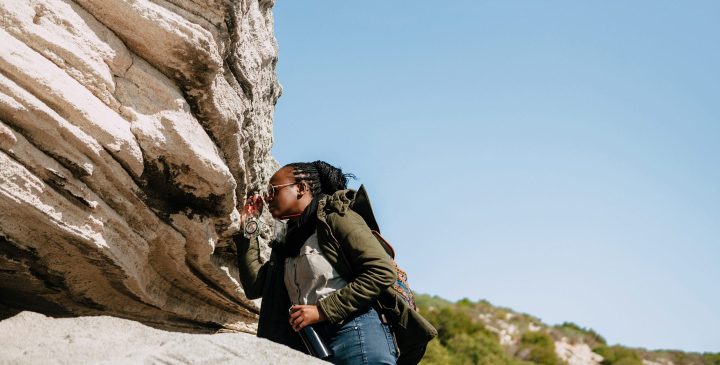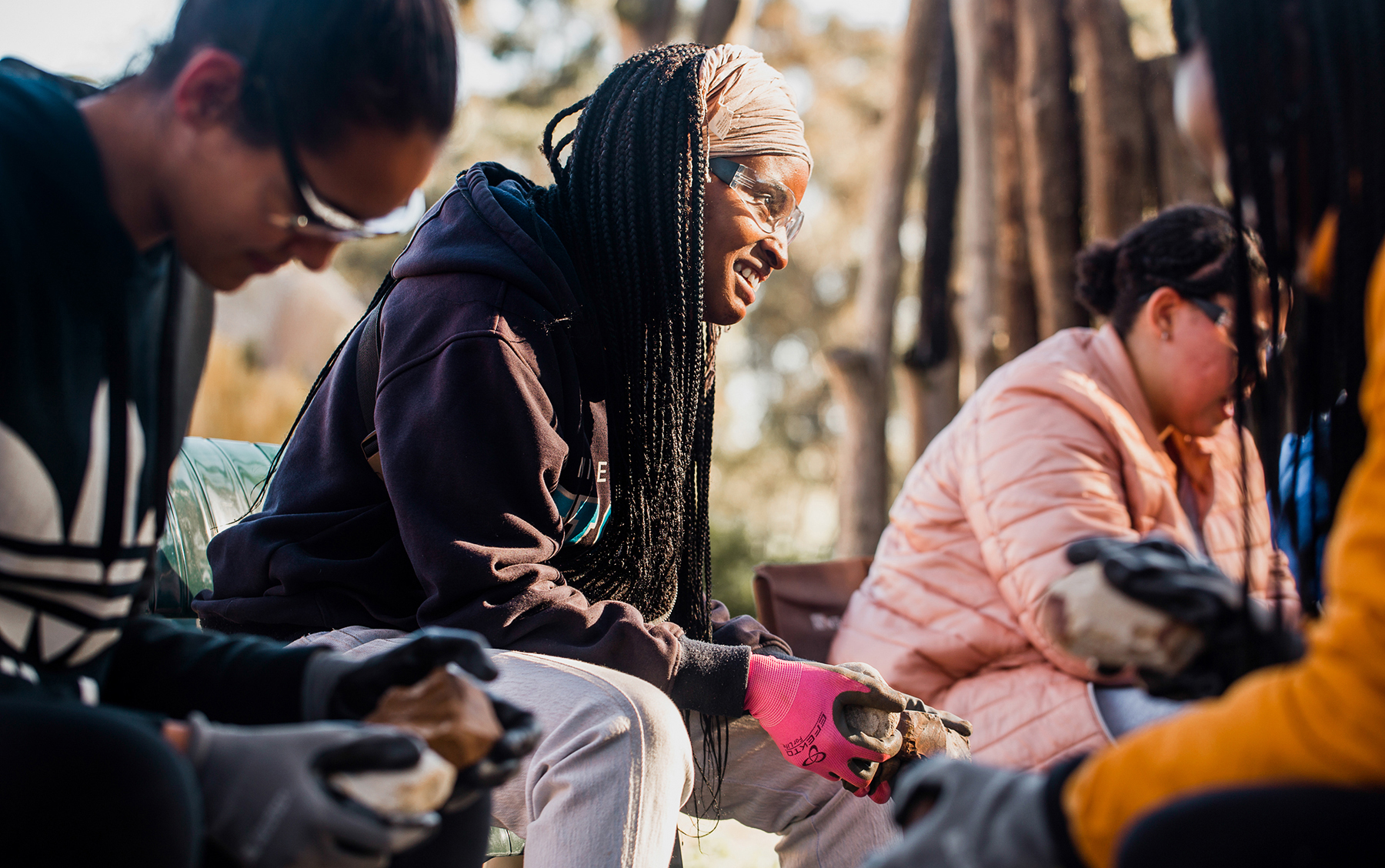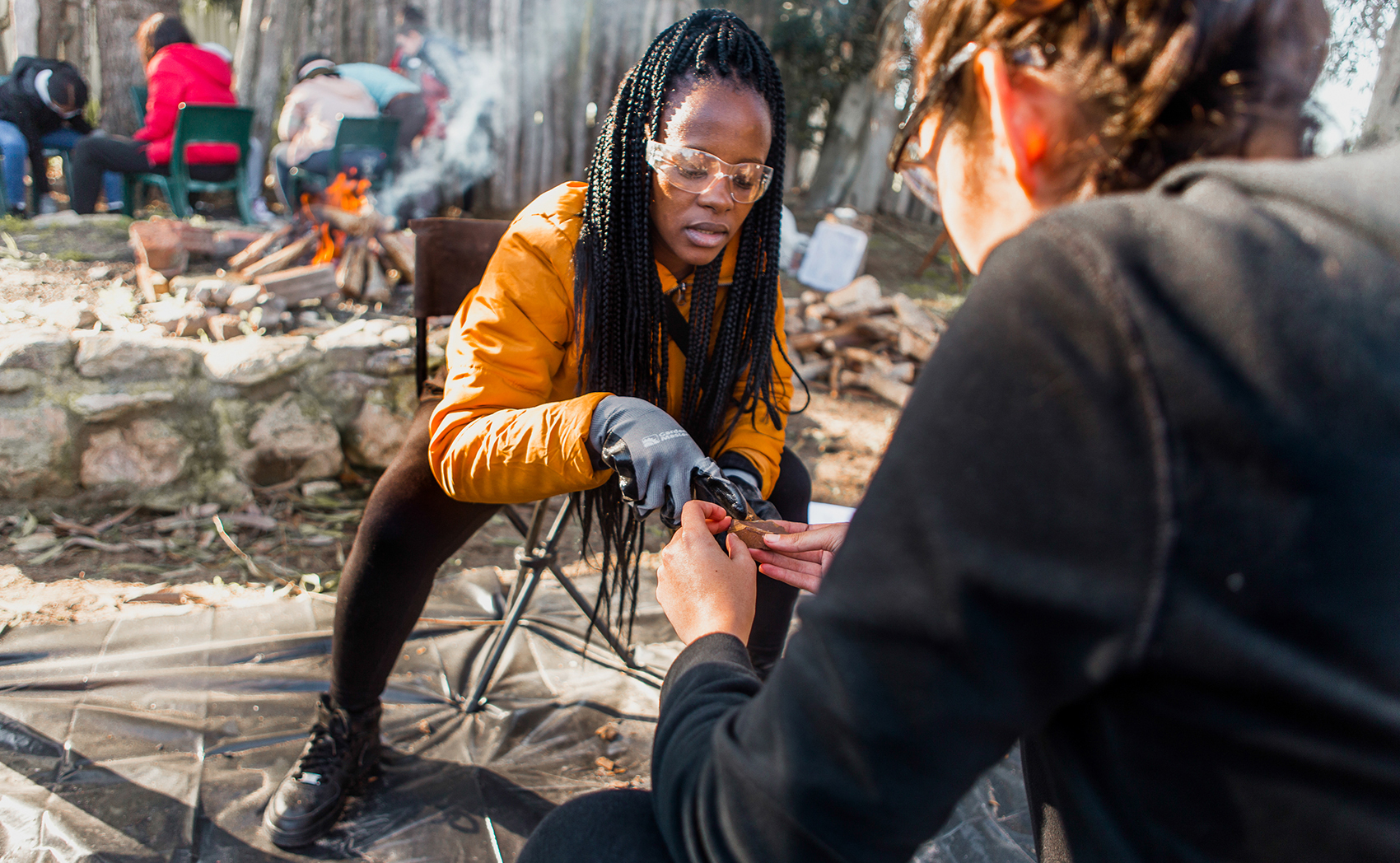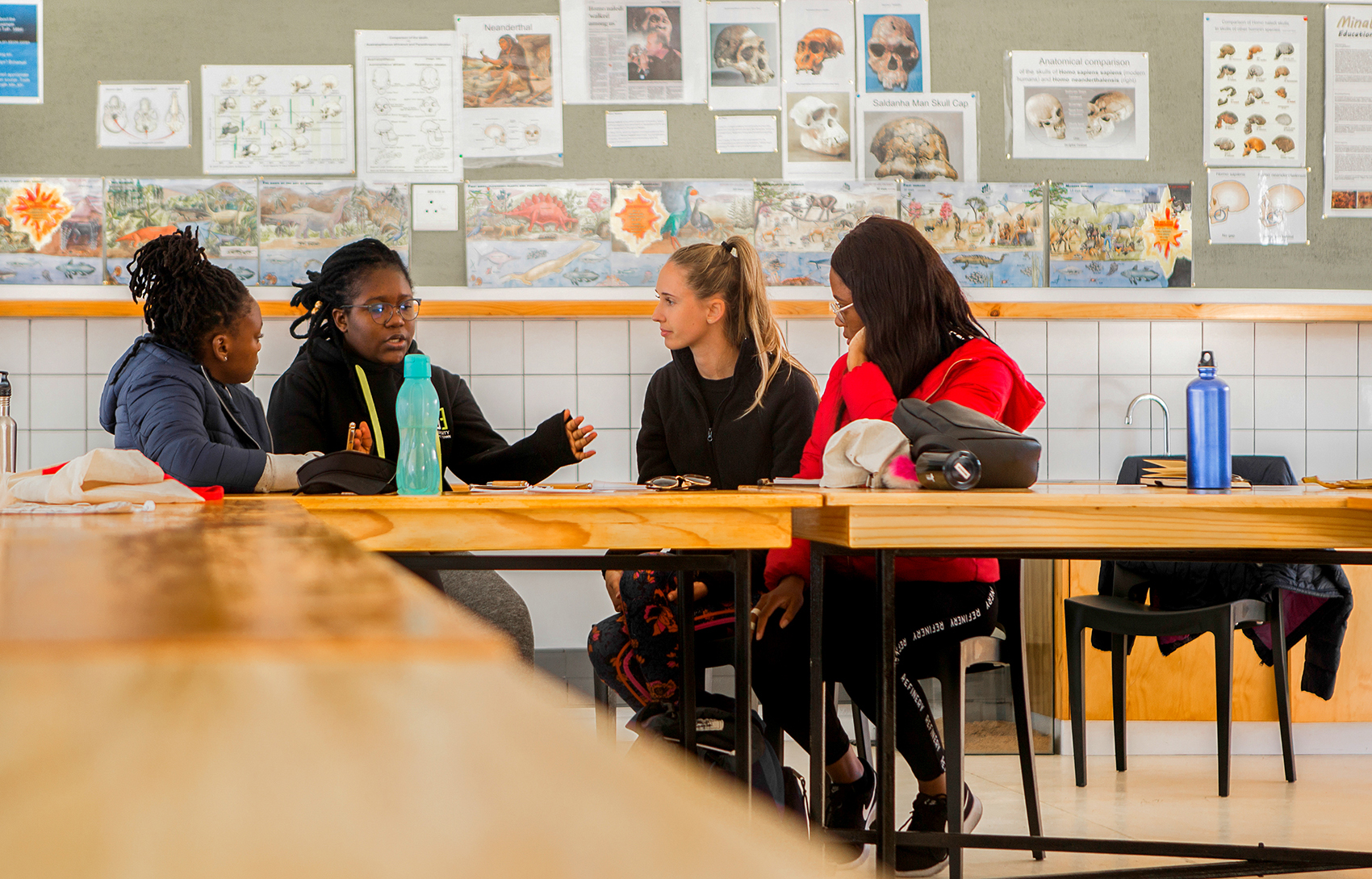BETTER SCIENCE OP-ED
Why we need diverse storytellers of human evolution

As far as we know, our camp is the first of its kind with the express purpose of giving young women who might be drawn to pursuing a career in human evolution an experience that would motivate them to do so.
Lying awake on a small blow-up camping mat on the cold, hard ground, in a small tent that shivers with the early winds of August, doesn’t sound like much fun.
Neither does enduring unwanted comments, off-colour jokes, groping, touching and general harassment ranging from mild discomfort to actual rape.
But that’s the reality for many of those who engage in fieldwork. A prerequisite for studies where data and artefacts are collected outside of the classroom, fieldwork is an essential part of human evolution research. It requires being in remote locations, often overnight in rustic conditions, surrounded by colleagues and strangers with little supervision.
Women, especially young women, students and junior researchers, are particularly vulnerable in fieldwork environments. But in the discipline of human evolution, it is an essential part of their training.
There has long been a sense of “what happens in the field, stays in the field”, and anecdotal accounts of harassment were bolstered by a 2014 US study that threw open the shutters on what really goes on besides simply digging for fossils.

The Human Evolution Research Institute field camp gives young women a field experience that will encourage them to embark on a career in science. (Photo: Robyn Walker)
In their survey of 666 field scientists, author Kathryn Clancy and colleagues revealed that more than 60% had personally experienced sexual harassment at a field site. More than 20% of respondents reported that they had been victims of sexual assault. Women trainees were the primary targets, and their perpetrators were usually senior to them.
This was a study of fieldwork practices across various contexts, including museums and universities, and it exposed worrying behaviours that were either unknown or ignored. But it led many to wonder: is the same thing happening here?
Read in Daily Maverick: “New research shows women in school leadership positions improve results and well-being”
There may not be peer-reviewed research answering this question yet, but our experience sheds light on what may be going on. It’s not much different than what our US colleagues identified – and its impacts have cast a shadow over the story of human origins.
The study of us
Fieldwork is a vital piece of the global study of human evolution, or the science and study of our recent and distant past, where we came from and what shaped us into the complex, diverse species we are today.
In South Africa, the record of our early pre-human relatives stretches back at least three million years. Our country holds an old and incredibly rich fossil history that details the emergence of our species. In fact, nearly 40% of all known ancient pre-human fossils come from just outside of Johannesburg, from the region known as the Cradle of Humankind. The Cradle is where groundbreaking revelations like Mrs Ples, Australopithecus sediba and Homo naledi were unearthed.
This geographic advantage, where evidence of our ancient past is literally on our collective doorstep, has led top universities in South Africa to offer programmes specialising in human evolution. Generous support, funding and sincere interest has also come from the National Research Foundation’s African Origins Programme, GENUS and Palaeontological Research in Africa (PAST), with millions allocated to human evolution and other palaeoscience research in recent years.

Developing expertise in these areas of science is important for South Africa, a region with a rich fossil heritage. (Photo: Robyn Walker)
.
Despite this, human evolution has been dominated historically by a privileged few – largely white men, many of whom are not even South African. We know from studies of postgraduate science students at South African universities that biased and unequal spaces like this lead to a reduced sense of belonging.
“Participants noted feelings of not belonging, based on their identities, and they had to constantly prove themselves as intelligent and legitimate knowers within their STEM (science, technology, engineering and maths) disciplines,” it says.
This means that many talented young women and men from this country who want to tell our origin story – a story that is rightfully theirs to tell – have been marginalised or excluded.
The Human Evolution Research Institute (HERI) at the University of Cape Town (UCT) aims to disrupt these dynamics by supporting South African researchers from all backgrounds and making space for telling our origin story with a diverse and inclusive team of researchers.
Breaking down barriers
HERI aims to do this with several new projects that break down barriers faced by underrepresented young researchers. Among these are annual women’s field camps that give UCT students in archaeology and geology confidence in the field sites their research will take them.
Where lying awake in the cold, hard ground of the field site may not be fun, it’s part of the training. But we make sure it’s the worst part of the training by ensuring a safe space for young women to learn basic fieldwork techniques, gain exposure to hiking and camping which may not have been part of their upbringings, and talk about taboo subjects associated with the field such as menstruation and harassment.
Visit Daily Maverick’s home page for more news, analysis and investigations
Third-year archaeology student Wafeeqah Mohammed, who attended the camp in 2019, said it was informative and inclusive, and inspired her to continue to postgraduate studies.
“I know harassment in the field is a huge thing, and now I feel more prepared for how to handle harassment if it were to happen to me,” she said.
During our 2022 camp, which ran in Women’s Month, PhD student Rivoningo Khosa helped oversee geology exercises with younger students. The experience, she says, opened a platform of communication without reservations where she could learn without judgement or bias.
Read in Daily Maverick: “Women’s History Month: 5 groundbreaking researchers who mapped the ocean floor, tested atomic theories, vanquished malaria and more”
“The conversations between women of different ages and races about our shared challenges and goals still influence the conversations I have today and how I view my place in human evolution,” she says.
As far as we know, our camp is the first of its kind with the express purpose of giving young women who might be drawn to pursuing a career in human evolution an experience that would motivate them to do so, and where they can network, share experiences and grow resilience with other women.
That’s important not only to give opportunities to those who need it, but to create role models who inspire future generations of researchers.
Investing in inclusivity
HERI makes it a priority to support South African women, especially black women, who want to pursue careers in human evolution, including in the subfields of archaeology, geology and biological anthropology. Since its inception in 2016, the institute has invested more than R5-million in the funding of postgraduates and their research, and we have successfully graduated numerous South African women researchers.
Funding, but also support such as that given in our field camps and from within the HERI community, is critical to ensuring these women stay in human evolution research and thrive in their careers.

A field setting with a toxically competitive atmosphere is not conducive to learning and students, particularly woman, get put off. (Photo: Robyn Walker)
.
“True inclusivity must provide a safe and equal platform for a wide range of voices that have historically been gate-kept from scientific space,” says research from our co-director, Professor Rebecca Ackermann.
Our vision is to expand, and to grow a network of future leaders of human evolution not only in South Africa, but Africa. Already, our 2022 field camp attracted participants from South Africa, Botswana, Lesotho, Zimbabwe and Uganda.
By bringing these women together over three days and two cold nights in little tents on the cold, hard ground, we made a successful first step in our mission to diversify the storytellers of human evolution.
Diverse teams result in better science. When it comes to human evolution, that story becomes more inclusive, richer and more accurate when it’s told by all of us. DM/MC
Dr Robyn Pickering is a Senior Lecturer at the Department of Geological Sciences at the University of Cape Town (UCT) and Co-director at the Human Evolution Research Institute (HERI). Professor Rebecca Ackermann is Co-director at HERI and a Professor at the Department of Archaeology at UCT. Dr Wendy Black is the Chief Curator of Art and Social History at Iziko Museums and a HERI member.
About HERI: The Human Evolution Research Institute (HERI) at the University of Cape Town (UCT) drives African-led research on human evolution at UCT and across the continent. To learn more about HERI visit https://www.heriuct.co.za/ or @heri_uct.



















Any story, even if its Mickey and Minny mouse has a much bigger “wow factor”, if you include a bit of possible sexual harrasment even if its possibly not true. I am wondering how the species they are studying would have behaved. Sometimes I think half these stories are fake, just so they can make a story. Hard to tell nowadays. Perhaps we are devolving. It sounds like women are born to be victims.